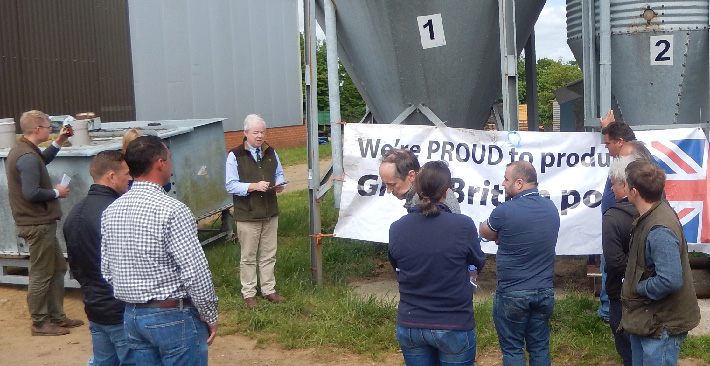The SPP has moved back slightly dropping by 0.16p to 149.1p and after three weeks of successive rises by 16 euro cents, the German market has paused for breath where prices have remained at stand on levels.
UK weekly contribution and spot prices have also remained at generally similar levels with spot bacon quoted in the 146p-152p range and weekly contribution prices in the 134p-142p region.
Cull sow quotes have however continued on their upward track adding another 3p today with prices heading towards the 80p level for large loads and a welcome improvement on the miserable 62p which was being paid in May.
An improvement in the value of the Euro has also helped as far as the pig meat import/export balance is concerned with the Euro trading on Friday worth 90.15p compared with 89.6p a week ago.
Weaner prices are however still under pressure with the latest AHDB 30kg average slipping by 87p to £51.92/head although 7kg average actually went up by £1.10 to £38.51.
There is still a shortage of buyers for Red Tractor weaners in particular which are extremely hard to place and some breeders may have no option but to finish the pigs themselves rather than virtually giving them away on the spot market although in the buyers defence, the cost of feed and straw has hit a big hole in their margins too.
Grain prices have been less volatile this week and for the time being to the relief of pig producers have actually stopped going up with ex farm spot UK feed wheat quoted at £174.10 and London futures saw November wheat traded at £181.75/t and March 2019 at £186.25/t.
For those likely to live long enough, a glance ahead to November 2020 is indicating slightly more moderate prices with wheat quoted at £164.35/t – well worth considering.
Soya prices have hardened with 48% soya ex Liverpool £3 dearer at £347/t and 38% rape meal up by £7/t to £233/t.
And finally, as the Brexit exit date draws nearer the NPA have expressed their concerns over the potential damage that could be caused to the UK pig sector as far as exports to the EU are concerned.
The main stumbling block which could hit annual UK pork exports of around 157,000 tonnes may arise as exports to the EU from the UK will be treated as a third country and exporters would have to comply with new export codes and procedures with reams of red tape which may well appear.
Existing supply chains and contracts would have to be re-written but there could be some benefits if the pound remains weak and a strong Euro prevails.
More questions than answers but with Brexit now not much more than 6 months away the UK pig industry needs to find some answers now as to which of the three options will apply, hard Brexit, soft Brexit or no deal.
Lastly, African Swine Fever remains a huge talking point in China following three outbreaks three and exporters will be watching this market extremely carefully in case any opportunities arise to step up exports from non ASF countries to meet any gaps that appear in the pig meat supply chain in China.




